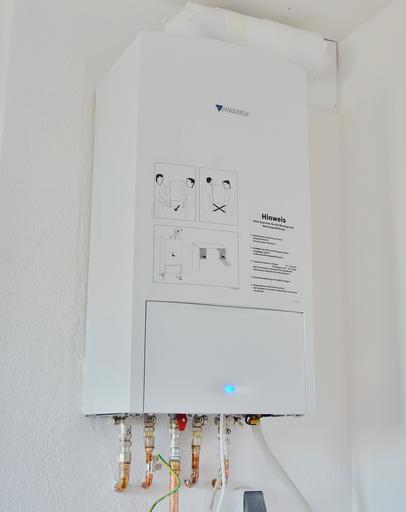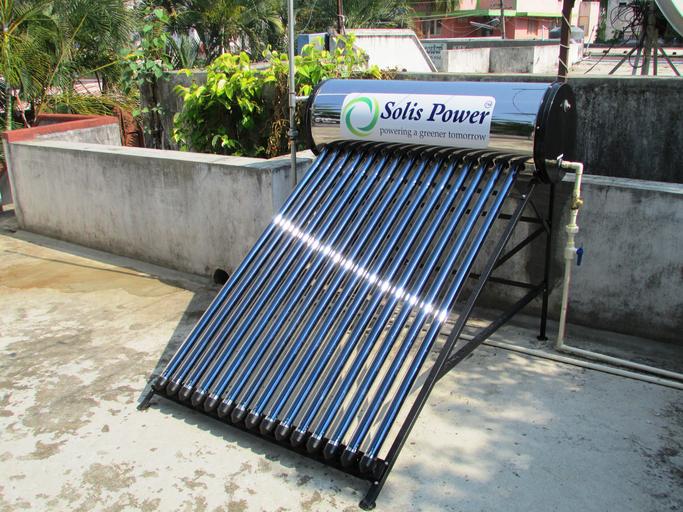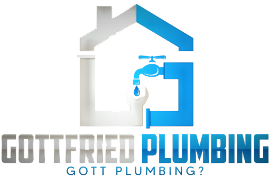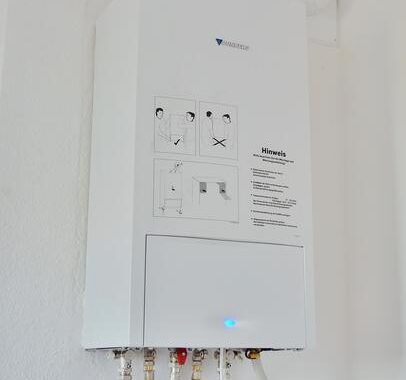Deciding on the finest water heater for your family requires a lot of considerations: tank or tankless, gas or electric. Based on your family members, think about the size of the tank you’ll require, and the number of gallons of water that you will utilize during peak periods. In this case, it is true that size does matter. Your new 50-gallon water heater tank may take up more space than your old one due to increasing insulation regulations.

Heating water accounts for about 20% of your household budget, second only to the expense of heating and cooling your home. And, if you’ve been spending more time at home as a result of the epidemic, your use and prices are likely to have increased. Despite their high cost, water heaters are frequently neglected until they fail, leaving you without hot water and maybe a flooded basement.
If your water heater is reaching the end of its useful life and you’re considering replacing it before a calamity occurs, you’ll be relieved to learn that you now have more options owing to federal laws requiring water heaters to be more energy-efficient. To function more efficiently, new storage tank water heaters are necessary, and tankless (on-demand) water heaters are even more efficient.
How to Choose the Right Water Heater?
When it comes to replacing your hot water heater, you’ll have to choose a few choices, including:
- Is it better to have a tank or not?
- Is it better to use gas or electricity?
- What size are you looking for?
- Should you rent or buy?
Considerations for a Water Heater
Energy Efficiency
When buying a hot water heater, one of the first things to consider is energy efficiency. The basic line is that if you conserve energy, you save money. Heating water accounts for around 18% of our residential energy usage, according to the Department of Energy. A more energy-efficient machine may be more expensive upfront, but it will save you money in the long term. It may also make you eligible for reimbursement.
Tank Water Heaters vs. Tankless Water Heaters
The most common type of water heater is one with a tank. If you don’t utilize the hot water you’ve saved, it cools and needs to be warmed all the time. They consume more energy but the storage tank water heaters are less costly than tankless water heaters and need less maintenance.
Tankless water heaters are sometimes known as on-demand or instantaneous water heaters. Because there is no tank, as the name says, it takes up less room. A coil system warms the water just when it is needed, resulting in lower energy expenses. Tankless gas and electric water heaters are more expensive up front, and they may need you to replace your electrical infrastructure. You may also require more than one if you have a larger home.
Water Heater Capacity
Residential tank water heaters come in a variety of sizes and capacities. Tank water heaters come in sizes ranging from 20 to 80 gallons. However, you must also take into account the first hour’s rating. That’s the amount of hot water your water heater produces in its first hour of operation. The first hour rating, or FHR, of your tank will be printed on the tank. The FHR should be close to how much water your household consumes at its peak, such as in the morning when the shower, dish washer, and washing machine are all going.
How do a Tankless Water Heater Work?
Without the necessity of a storage tank, tankless water heaters heat water instantly. When you turn on a hot water faucet, cold water runs through a heat exchanger in the device, where it is heated by either a natural gas burner or an electric element. Tankless water heaters provide a consistent supply of hot water as a consequence. There’s no need to wait for a hot water storage tank to fill up. The output of a tankless water heater, on the other hand, restricts the flow rate.
Tankless water heaters typically offer 2–5 gallons (7.6–15.2 liters) of hot water per minute. The flow rates of gas-fired tankless water heaters are greater than those of electric tankless water heaters. Even the biggest, gas-fired model, however, cannot always provide enough hot water for several simultaneous usage in large houses. Taking a shower and running the dishwasher at the same time, for example, might tax a tankless water heater. You may solve this issue by installing two or more tankless water heaters. You may also install separate tankless water heaters for equipment that utilize a lot of hot water in your house, such as a clothes washer or a dishwasher. Additional water heaters, on the other hand, will cost more and may not be worthwhile.
Water Heater Warranties
Find out what kind of warranty your hot water heater comes with. You’ll want to get the most out of the warranty you can get. A domestic water heater has an average lifespan of 10 to 15 years. A well-kept commercial water heater should endure for 20 years or more.
Before you begin, double-check that you have all of the necessary water heater components and accessories, such as water heater drain pans, water heater blankets, expansion tanks, pipes, fittings, and insulation. There is also a range of solar and hybrid water heaters to choose from.
Installing water heaters can be a daunting task, so leave it to us. On some brands of water heaters, check your local store or online for specifics on delivery and installation. Because no one enjoys taking cold showers!
Types of Water Heaters
There are numerous options depending on how much hot water you consume and how you heat the water (gas or electric). Some versions are said to lower energy expenses in half compared to traditional storage methods. However, because of the additional up-front expenditures, the payback period may be longer.
Natural Gas Water Heaters
With a natural gas hot water heater, you can easily connect to the existing municipal grid. Clean, dependable hot water is provided to your house by one of Ace’s modern, energy-efficient units. Our gas water heaters deliver constant hot water appropriate to your household’s needs, thanks to innovative features and the latest in energy-saving measures. Tank sizes and BTU rates, as well as new technical innovations, are all available.
Propane Water Heaters
Propane water heaters bring efficiency and dependability to your home’s comfort with higher BTU ratings than other fuels on the market. Top-of-the-line propane hot water heaters are available in a variety of sizes and BTUs for your house.
Condensing Water Heater
If you heat with gas and require a device with a capacity of more than 55 gallons, eCondensing water heaters are an alternative.
These types contain a tank similar to a traditional water heater, but they trap exhaust gases that would otherwise be wasted by going out the chimney. These gases are blasted through a coil at the unit’s base, where the heat is absorbed by the incoming cold water.
Electric Water Heaters
Integrate an electric water heater into your current electrical system for a simple way to heat water for your entire home. Ace sells the greatest brands in the market, including Kenmore, Reliance, Bosch, and Ecosmart, in a variety of sizes and power ratings.
Solar Water Heater
In a closed-loop system that runs to the water tank, a roof-mounted cell absorbs the sun’s heat and converts it to an antifreeze-like fluid. The greatest offer excellent summer savings, making them appealing in hot, sunny climates. On cold and foggy days, though, savings diminish. The majority of models include a backup mechanism that kicks in when it’s needed.
Even with federal and local incentives, the cost of purchasing and installing a solar system can take 10 to 30 years to recuperate.

Tankless Water Heaters
Our tankless water heaters are available in a variety of energy sources, including natural gas, propane, and electricity, to provide your house with rapid hot water. With a wall-mountable design and elegant functionality, you can save room while getting continuous hot water. You may benefit from cutting-edge efficiency in a streamlined design with a tankless water heater from Ace.
Installation and Maintenance of a Water Heater
Your demand water heater’s energy efficiency may be improved by proper installation and maintenance.
Many factors influence proper installation. These considerations include fuel type, climate, local building code requirements, and safety concerns, particularly with regard to gas-fired water heater combustion. As a result, it’s advisable to have your water heater installed by a licensed plumbing and heating professional. When choosing a contractor, keep the following in mind:
- In writing, request cost estimates.
- Inquire about recommendations.
- Consult your local Better Business Bureau for information about the firm.
- Check to see if the firm will seek a local permit if one is required and if they are familiar with local building rules.
If you’re set on installing your water heater yourself, talk to the manufacturer first. The relevant installation and instruction manuals are normally available from the manufacturer. Also, check with your city or municipality for information on acquiring a permit and local water heater installation requirements, if applicable.
Periodic water heater maintenance may considerably increase the life of your water heater and reduce efficiency loss. Specific maintenance advice may be found in your owner’s handbook.
Advantages and Disadvantages
A tankless water heater has a higher initial cost than a traditional storage water heater, however tankless water heaters often live longer and have lower operating and energy expenses, which may offset the higher purchase price. The majority of tankless water heaters have a lifespan of over 20 years. They also contain easily replaceable parts, allowing them to last for many more years. Storage water heaters, on the other hand, endure 10–15 years.
Demand water heaters are 24 percent–34 percent more energy efficient than traditional storage tank water heaters for residences that utilize 41 gallons or less of hot water each day. For households that utilize a lot of hot water — roughly 86 gallons per day — they can save 8–14 percent on electricity. In rare circumstances, installing a demand water heater at each hot water outlet may result in even higher energy savings.
The cost of running a tankless water heater’s pilot light varies depending on the type. For the model you’re considering, check the manufacturer’s documentation to see how much gas the pilot light requires. Instead of a standing pilot light, look for versions with an intermittent ignition mechanism (IID). This mechanism looks similar to the spark ignition device used on some natural gas furnaces, as well as kitchen ranges and ovens.
The standby heat losses associated with storage water heaters are avoided with tankless water heaters. Although gas-fired tankless water heaters have better flow rates than electric ones, if they have a pilot light, they can waste energy. When contrasted to a storage water heater, this can sometimes balance the removal of standby energy losses. The pilot light of a gas-fired storage water heater warms the water in the tank, saving electricity.


